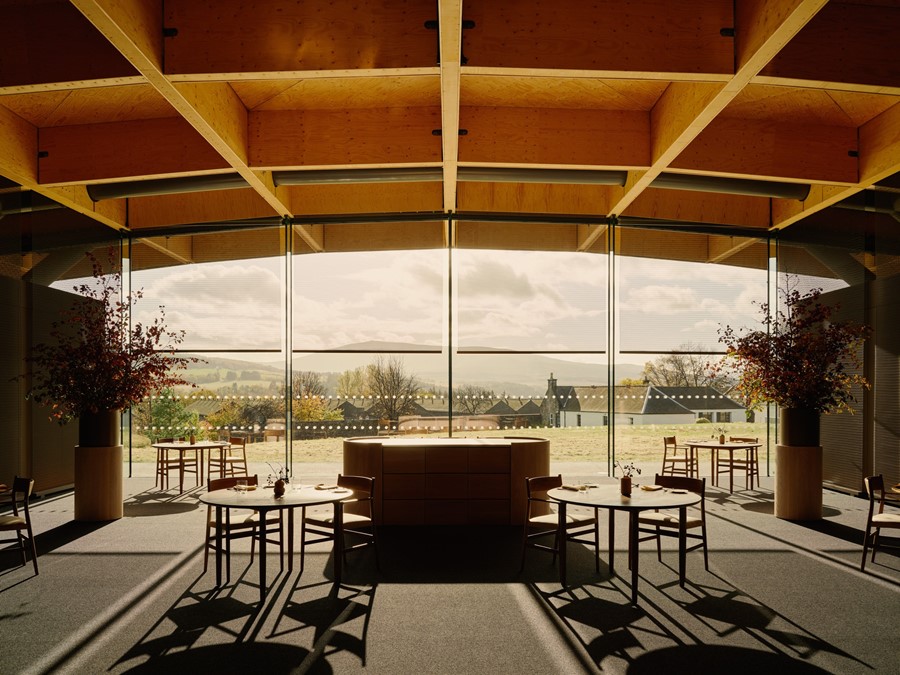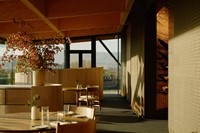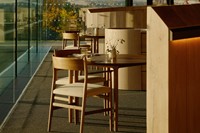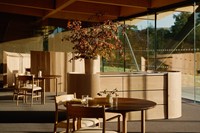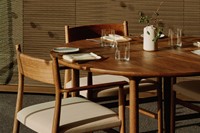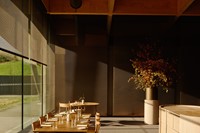Set on the sprawling Macallan estate in Scotland, the Roca Brothers’ new restaurant TimeSpirit is the much-anticipated follow-up to the three Michelin-starred diner El Celler de Can Roca in Girona, Catalonia
Speyside’s autumnal vista of rolling hills and valleys resembles a Bob Ross painting. It’s a serene scene. Trees with saturation hiked up, exaggerated yellows and oranges, a calm river, friendly bouncing rams and some auburn cows with impressive emo fringes: you could never tire of staring at it. That’s why it’s the prominent view from TimeSpirit, the highly-anticipated sequel to one of the world’s most-hyped restaurants. The dining room within the futuristic whisky distillery, designed to look like grassy mounds on the over 400-acre Macallan estate, is intentionally pointed towards the picturesque highland landscape.
For those keen to adventure within the UK this winter for a bit of nature, calm and a feast (featuring lots of whisky and wine), this tiny Scottish village just became the surprise home of the much-anticipated follow-up to the three Michelin-starred diner El Celler de Can Roca in Girona, Catalonia, which has been voted the best restaurant in the world twice. The new project brings together the flair of the culinary masterminds, the Roca brothers, for their first challenge outside of Spain. AnOther was one of the first to try their new menu, which infused the area’s alcohol history and the team’s playful and experimental cooking, from whisky-smoked Oysters and melting beef tenderloin with Macallan whisky-aged mustard to a globe orbited by amuse bouches that represent different cultures (the vegetarian haggis feels like the most appropriate starting point).
The brothers – Joan, the head chef; Josep, a sommelier; and Jordi, who specialises in desserts – have always told the press that they want to stay close to home (one New York Times article says that they still ate their mother’s food on their lunchbreak even when their restaurant was amassing 11-month waiting lists and fine dining accolades). Aside from creating a menu for Elton John’s Oscar party in 2018 and doing a pop-up here and there, tasting their dishes outside of Girona has been hard. As the sun sets on the TimeSpirit private dining space, Joan and Josep tell Another that they have had many passionate offers to open an overseas restaurant. “We said no to Shanghai, Abu Dhabi, Singapore, Tokyo, Las Vegas. But, yes to Scotland,” explains Josep. “This connects with our values.”
So why leave a sunny and super successful kitchen in Spain for the tip of the British Isles rather than somewhere more predictable like London? “People need to come here. They don’t always know that the quality of the produce in Scotland is incredible,” Josep continues. “It’s a great opportunity to share our point of view.” The main thing that impresses the team is that unlike in the other bustling cities on offer, everything from game meats, seafood, herbs, and seaweed has had a very short journey to the plate as they’re from farms and waters “very close to the distillery” and are “exceptionally high quality”.
More travelled to the highlands last year than before the pandemic, with a 14 per cent rise in visitors. Wedged between Cairngorms (the UK’s biggest national park) and the North Sea, the dramatic landscape that surrounds Time Spirit gives visitors the chance to take in everything from red deer to dolphins, classic interiors in boutique hotels like Hotel 1881 or the Vogue-approved two-Michelin-key hotel The Fife Arms, and impossibly old castles and pubs.
In contrast to the kitchens captivating audiences in The Bear or Boiling Point, the inseparable Roca siblings have a caring and inventive reputation. In 2017, they became United Nations Development Program Goodwill Ambassadors to champion eco-friendly food practices. There’s a biochemist, an agricultural engineer, a botanical biologist, an alchemist. They even hired an on-site psychologist to help staff handle the restaurant’s intimidating reputation. “We have this idea of emotional sustainability, so sustainability not just the food but also of the person working with you,” says Josep.
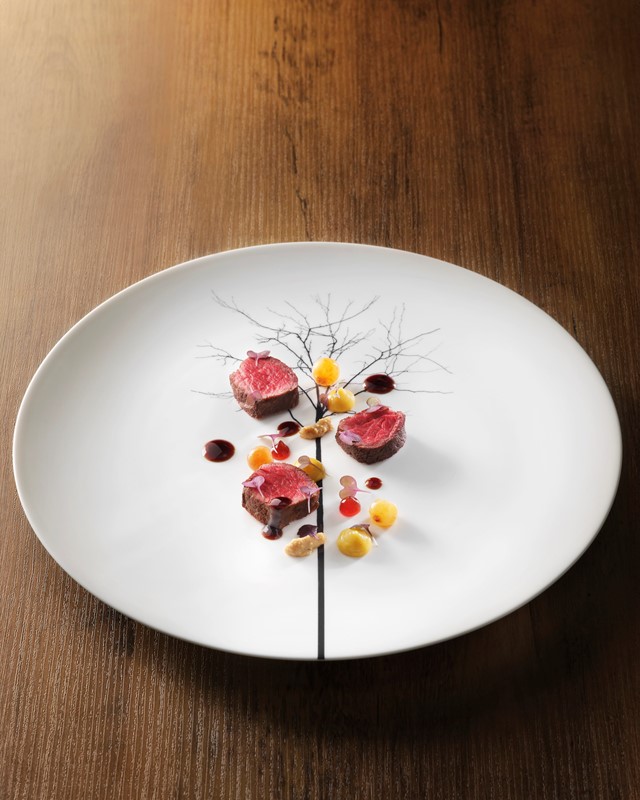
Each summer, they shut their restaurants for five weeks to travel with their staff to sample different cuisines and develop new dishes. In 2019, they released Chef’s Diaries: Scotland, a documentary that drew them into the culinary processes in the region. Now, with the help from the brand that holds the title for most expensive whisky ever sold ($2.7million), they’ve taken a big leap to create a showcase menu of hyperlocal products, which is an ode to the links between their culinary home and Scotland (the oak casks responsible for The Macallan’s whiskies their flavours are from the Jerez region in Spain and feature as pairings to the dishes). Joan says a standout dish is the pork presented in three parts: a “clarifying” consommé, the neck softened by low-temperature cooking and then a Xuixo, a dessert popular in Girona, stuffed with more pork. The lunch tasting menu is £60, while dinner is £95, a more accessible price tag than a flight to Spain to try their €195+ menus.
Creating a welcoming atmosphere in such a vast building is a challenge. Still, the interiors here were the work of David Thulstrup, who has a knack for creating special dining experiences – he designed Noma, which has won best restaurant in the world five times and also Ikoyi, a two Michelin star Afrcan-inspired restaurant on the Strand in central London. Walking past the 24-seat main hall towards the impressive wine room, he tells Another that Time Spirit intentionally has no art on the walls to encourage people to look outward. “I wanted to create a picture frame for that landscape,” he says. “We didn’t crowd 100 people’s worth of seats in here. It’s more spacious, so you can feel the connection between where you are sitting and who you are sitting with, and you have the chefs right in front of you. It’s more intimate.”
They’re firm on the secret sauce for creating a world-leading restaurant: “Innovation, new technologies and new techniques, but exceptional hospitality. But also, the first rule of being first is for that not to be your main goal at all. “It’s not about being the best in the world. It’s about being authentic.”
